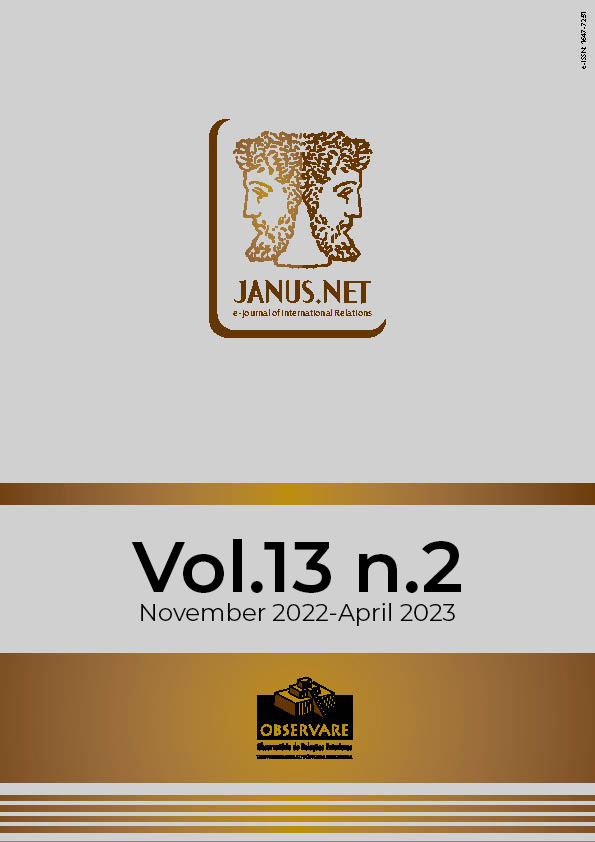During the early 21st century, there was an unprecedented increase in piracy and armed
robbery in various regions of the globe, but especially in the Indian Ocean, the Gulf of Guinea
and Southeast Asia. The Horn of Africa in particular has seen an exponential increase in
attacks since 2007. These attacks have jeopardised security in the region’s waters and led
the United Nations Security Council to adopt six resolutions in 2008, urging the world’s nations
to participate in the common effort to contain the phenomenon. This article aims to show that
the concepts of the security theory of the Copenhagen School provide a useful tool to analyse
the phenomenon of piracy and armed robbery in the Horn of Africa. To that end, we have
conducted a brief review of some of the major works produced by that school. We will then
address some of the most relevant critics of this theory. Finally, we have analysed the
interventions of a significant group of agents involved in the securitization of contemporary
Somali piracy. The conclusions section presents the reasons that support our claim that the
security theory of the Copenhagen School can be used to study the phenomenon of maritime
piracy in the Horn of Africa.
AN ANALYSIS OF THE ISSUE OF PIRACY IN THE HORN OF AFRICA THROUGH THE LENS OF THE SECURITIZATION THEORY OF THE COPENHAGEN SCHOOL
»
Research Associate at the Research and Development Centre of the
Military University Institute (Portugal).
Resumo
Os primeiros anos do século XXI trouxeram uma escalada sem precedentes de atos de
pirataria e de assalto armado em diferentes áreas geográficas, sobretudo no Oceano Índico,
no Golfo da Guiné e no Sudeste da Ásia. O Corno de África, em concreto, assistiu a um
incremento exponencial de atos desta natureza a partir de 2007, que puseram em causa a
segurança nos espaços marítimos da região e que levou o Conselho de Segurança das Nações
Unidas a adotar, ao longo de 2008, seis resoluções exortando à participação alargada das
nações no esforço comum de contenção daquele fenómeno. Pretende-se com este artigo
demonstrar que os conceitos da teoria de segurança da Escola de Copenhaga constituem uma
ferramenta de análise adequada ao fenómeno da pirataria e assalto armado na região do
Corno de África. Para tanto examinámos, de modo conciso, algumas das obras de referência
da bibliografia que constituem o repertório daquela escola. Abordámos, de seguida, ainda de
forma sucinta, alguns dos mais relevantes críticos desta teoria. Analisámos, por fim, as
intervenções de um conjunto significativo de agentes de securitização da pirataria somali
contemporânea. As conclusões apresentam as razões que sustentam o nosso posicionamento
de que a teoria de segurança da Escola de Copenhaga é passível de ser aplicada ao estudo do
fenómeno da pirataria marítima no Corno de África.
Palavras-chave
Como citar este artigo
Alexandre, António Gonçalves (2022). An analysis of the issue of piracy in the Horn of Africa
through the lens of the Securitization Theory of the Copenhagen School. Janus.net, e-journal
of international relations, Vol13 N2, November 2022-April 2023. Consulted [online] in date of
last visit, https://doi.org/10.26619/1647-7251.13.2.2
Article received on 5 August, 2022 and accepted for publication on 6 October, 2022















